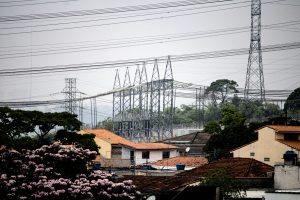Exploring Innovative Approaches to Property Management
When it comes to property management, innovation and adaptation are key. With the growing demand for efficient and effective property management services, it is important for property managers to stay ahead of the game. Gone are the days of manual and traditional approaches, as the real estate industry is moving towards exploring innovative solutions to streamline processes and improve overall management.
Embracing Technology in Property Management
One of the most notable innovative approaches in property management is the use of technology. Technology has drastically changed the way we live, work, and do business. In the property management sector, technology has played a significant role in enhancing efficiency and ensuring customer satisfaction. From automated processes to tenant portals, property managers are now able to manage their properties remotely and in real-time.
Automation for Efficiency and Accuracy
Manual processes such as paper-based documentation and manual data entry have been replaced by automated systems in property management. These systems not only save time and resources but also significantly reduce the chances of human error. Tasks such as rent collection, maintenance requests, and accounting can now be automated, allowing property managers to focus on other important aspects of their business.
Tenant Portals for Improved Communication
Tenant portals have become a popular feature in property management. These online portals allow tenants to access important information related to their lease, make payments, and submit maintenance requests. With the rise of remote work and limited in-person interactions, tenant portals have played a crucial role in improving communication and providing a convenient way for tenants to manage their living space.
Data Analytics for Informed Decision-Making
Data analytics has revolutionized the way property managers make decisions. With the help of analytics software, property managers can gather data on various aspects of their properties such as occupancy rates, rental rates, and maintenance costs. This data can then be used to identify trends and make data-driven decisions that will improve the overall performance of their properties.
Predictive Analytics for Maintenance and Repair Planning
One of the biggest challenges in property management is maintenance and repair. With the use of predictive analytics, property managers can anticipate when repairs or maintenance may be needed, allowing them to plan and budget accordingly. This not only saves time and resources but also improves tenant satisfaction as issues can be addressed proactively.
Market Analysis for Competitive Pricing
Data analytics also allows property managers to analyze the market and set competitive rental rates. By gathering data on similar properties in the area, property managers can ensure they are offering competitive rates and attracting desirable tenants.
Smart Home Technology for Convenience and Security
Smart home technology has become a highly sought-after feature in rental properties. These technologies allow tenants to control various aspects of their home, such as lighting and temperature, with the touch of a button. Not only does this add convenience for tenants, but it also increases energy efficiency and can lead to cost savings for the property owner.
Smart Lock Systems for Increased Security
Smart lock systems are another popular feature in property management. These systems use advanced technology, such as biometrics and remote access control, to ensure the security of the property. Smart lock systems not only provide peace of mind for tenants but also reduce the need for physical keys, making the property management process more efficient.
Smart Sensors for Energy Management
Smart sensors, such as motion detectors and temperature sensors, have also become an integral part of property management. These sensors can be programmed to regulate temperature and turn off lights when no one is in the room, reducing energy consumption and costs for both the property manager and tenants.
Conclusion
Innovative approaches to property management have greatly improved efficiency, communication, and decision-making for property managers. With the continued advancement of technology, the potential for further innovation in the industry is limitless. Property managers who embrace these innovative solutions will not only stay ahead of the competition but also provide a better experience for their tenants.











